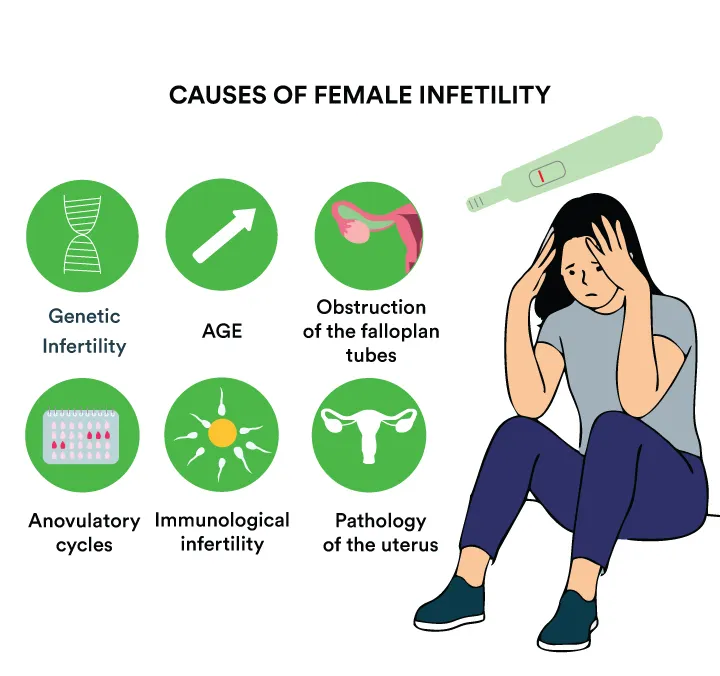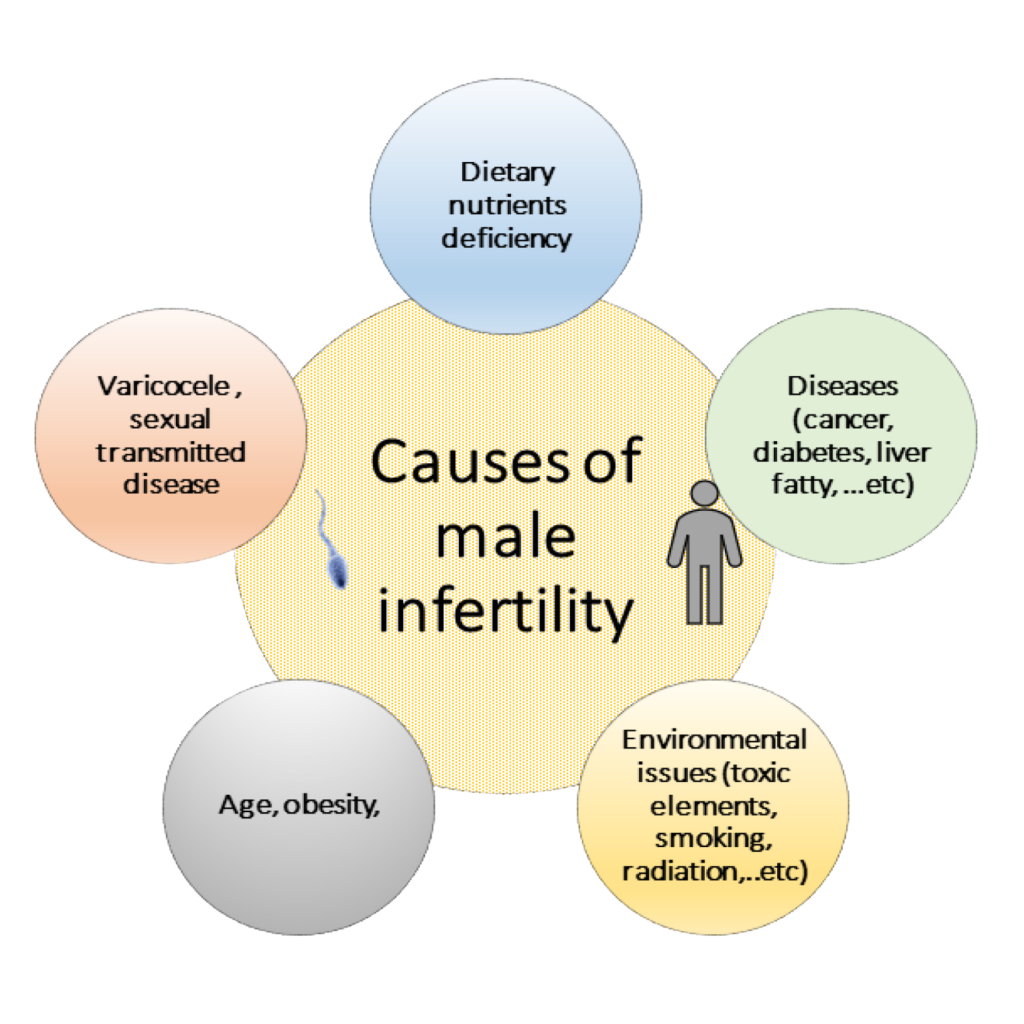Understanding Infertility: Causes, Symptoms, and Treatment Options in Karaikudi
Infertility is a growing global concern, affecting millions of couples who struggle to conceive naturally. Understanding its causes, symptoms and treatment options is essential for those facing fertility challenges. According to the World Health Organization (WHO), one in six couples worldwide experiences infertility . However, advancements in medical science have brought renewed hope, enabling many to achieve their dream of parenthood through effective fertility treatments.
In Karaikudi, Lakshmi Fertility Centre serves as a beacon of hope, offering advanced reproductive healthcare with a compassionate approach. Equipped with state-of-the-art facilities, the centre provides personalized fertility solutions tailored to each patient’s unique needs, maximizing their chances of conception.
What is Infertility?
Infertility is the inability to conceive after one year of regular unprotected sexual intercourse (or six months if the woman is over 35). It affects millions of couples worldwide and can be caused by medical, genetic or lifestyle factors. Infertility does not mean permanent sterility – many couples can conceive with medical assistance and lifestyle changes.
Both men and women can experience infertility due to various underlying reasons, including hormonal imbalances, structural abnormalities, sperm disorders and age-related decline in fertility.

How Common is Infertility?
According to the World Health Organization (WHO), infertility affects 1 in 6 couples globally. This means approximately 17.5% of adults experience infertility at some point in their lives.
In India, the prevalence of infertility is rising. The Indian Society of Assisted Reproduction (ISAR) states that 10-15% of Indian couples struggle with infertility. The primary reasons include late marriages, high stress, obesity, pollution, and medical conditions like PCOS and diabetes.
Causes of Infertility
1. Female Infertility Causes
Women may face infertility due to hormonal imbalances, ovulation disorders, structural abnormalities or lifestyle factors.
- Ovulation Disorders: Conditions like polycystic ovary syndrome (PCOS) or premature ovarian failure prevent regular ovulation.
- Hormonal Imbalances: Disorders such as thyroid dysfunction and high prolactin levels interfere with ovulation.
- Blocked Fallopian Tubes: Infections, sexually transmitted diseases (STDs), or surgeries can cause scarring and blockages.
- Endometriosis: The presence of uterine-like tissue outside the uterus can cause pain and fertility issues.
- Uterine Fibroids & Polyps: Non-cancerous growths in the uterus can affect implantation and pregnancy.
- Early Menopause: Some women experience menopause before the age of 40, making natural conception difficult.

2. Male Infertility Causes
Male infertility accounts for 40-50% of infertility cases and is mainly due to sperm-related problems and hormonal imbalances.
- Low Sperm Count (Oligospermia): Reduced sperm concentration in semen.
- Poor Sperm Motility (Asthenozoospermia): Inability of sperm to swim efficiently.
- Abnormal Sperm Shape (Teratospermia): Misshapen sperm reduce the chances of fertilization.
- Varicocele: Enlarged veins in the scrotum that lower sperm production and quality.
- Erectile Dysfunction & Ejaculation Problems: Difficulty in achieving or maintaining an erection can affect conception.

3. Lifestyle & Environmental Causes
Lifestyle choices and environmental exposure significantly impact fertility in both men and women.
- Smoking & Alcohol Consumption: Reduces sperm quality and affects egg health.
- Obesity & Poor Diet: Excess body weight disrupts hormone balance and ovulation.
- Chronic Stress: High stress levels affect hormone production, reducing fertility potential.
- Chemical & Radiation Exposure: Industrial chemicals, pesticides, and radiation negatively impact reproductive health.
4. Unexplained Infertility
In 10-20% of cases, doctors cannot determine the exact cause of infertility, known as unexplained infertility. Couples in this category may still conceive with IVF, IUI or lifestyle modifications.
Infertility Trends in India
Infertility rates in India are increasing due to socioeconomic and lifestyle factors. According to ISAR, urban areas have higher infertility rates due to stress, pollution, late pregnancies and obesity, while rural areas face challenges due to malnutrition, infections and lack of medical awareness.
Some key contributors to infertility in India include:
- Late Marriages & Delayed Childbearing: More people prioritize careers and financial stability, reducing natural fertility potential.
- Increase in PCOS & Thyroid Disorders: 1 in 5 Indian women suffers from PCOS, a leading cause of infertility.
- Rise in Diabetes & Obesity: India has one of the highest diabetes rates worldwide, which affects both sperm and egg health.
- Work Stress & Sedentary Lifestyles: Long working hours and lack of exercise negatively impact reproductive health.
Symptoms of Infertility
Infertility often does not present obvious symptoms beyond the inability to conceive. However, underlying reproductive health issues may cause noticeable signs in both men and women. Recognizing these symptoms early can help in diagnosing fertility problems and seeking timely medical intervention.
Symptoms of Infertility in Women
Women experiencing infertility may notice irregular menstrual cycles, hormonal imbalances, or pain-related conditions that affect reproductive health.
1. Irregular or Absent Periods
- Irregular cycles (shorter than 21 days or longer than 35 days) suggest ovulation problems.
- Missed or absent periods (amenorrhea) could indicate conditions like polycystic ovary syndrome (PCOS), thyroid disorders or early menopause.
- Heavy or painful periods might be a sign of fibroids, endometriosis or uterine polyps, which can interfere with conception.
2. Pain During Intercourse (Dyspareunia)
- Chronic pain during sex may result from endometriosis, pelvic inflammatory disease (PID) or vaginal infections.
- Endometriosis, where uterine tissue grows outside the uterus, causes severe cramps and can lead to infertility.
- Pelvic adhesions or scarring from past infections or surgeries can also make conception difficult.
3. Abnormal Vaginal Discharge
- Persistent thick, foul-smelling or unusual-colored discharge may indicate infections like bacterial vaginosis (BV) or sexually transmitted diseases (STDs), which can cause infertility if untreated.
4. Hormonal Imbalances
Hormonal issues affecting fertility may cause:
- Acne or oily skin due to high androgen levels (common in PCOS).
- Unexplained weight gain or loss affecting ovulation.
- Excessive hair growth (hirsutism) on the face, chest or back, often due to PCOS.
- Hair thinning or hair loss linked to thyroid disorders or hormonal shifts.
5. Breast Discharge or Tenderness
- Unexpected nipple discharge (galactorrhea), not related to pregnancy or breastfeeding, may indicate high prolactin levels, which disrupt ovulation.
6. Recurrent Miscarriages
- If a woman experiences multiple miscarriages, it may be due to uterine abnormalities, immune disorders or chromosomal issues affecting embryo development.
Symptoms of Infertility in Men
Men may not always show noticeable infertility symptoms beyond the inability to conceive. However, certain physical and hormonal signs can indicate fertility problems.
1. Changes in Libido or Sexual Function
- Reduced sex drive may result from low testosterone levels.
- Erectile dysfunction (ED) or difficulty maintaining an erection can be linked to hormonal imbalances, cardiovascular issues or diabetes.,/b>
- Difficulty ejaculating or abnormal ejaculation (low semen volume) can indicate reproductive tract blockages or low sperm production.
2. Pain, Swelling, or Discomfort in the Testicles
- Varicocele (enlarged veins in the testicles) can lead to overheating, affecting sperm production.
- Infections like orchitis or epididymitis can cause testicular pain and fertility problems.
3. Small, Firm, or Swollen Testicles
- Abnormally small or firm testicles may signal hormonal deficiencies, genetic disorders (like Klinefelter syndrome) or testicular failure.
- Swollen testicles could indicate an infection or a varicocele affecting sperm health.
4. Changes in Body Hair or Breast Growth (Gynecomastia)
- Loss of body or facial hair suggests a decline in testosterone levels.
- Enlarged breast tissue (gynecomastia) can result from hormonal imbalances or liver disease, impacting sperm production.
5. Low Semen Volume or Abnormal Sperm Quality
- Watery or low semen volume may indicate low sperm count (oligospermia).
- Thick, discolored or foul-smelling semen could be a sign of infection affecting sperm health.
- Poor sperm motility or abnormal sperm shape (teratospermia) reduces the chances of successful fertilization.
6. Chronic Health Issues or Medications Affecting Fertility
- Diabetes, obesity, thyroid disorders and high blood pressure can all impact sperm production and sexual health.
- Certain medications like anabolic steroids, chemotherapy or antidepressants may reduce sperm count and testosterone levels.
Advanced Infertility Treatment Options in Karaikudi
At Lakshmi Fertility Centre, Karaikudi, we offer the latest treatments to help couples conceive successfully.
1. Ovulation Induction Therapy
- This treatment involves using medications such as Clomiphene Citrate, Letrozole and Gonadotropins to stimulate ovulation in women who do not ovulate regularly.
- The process includes hormone monitoring, follicular tracking through ultrasound and precise timing of intercourse or IUI.
- It is a non-invasive and cost-effective first-line treatment.
- Success Rate: 30-40% per cycle.
2. Intrauterine Insemination (IUI)
- A minimally invasive fertility treatment where sperms are washed and directly injected into the uterus during ovulation.
- The procedure enhances sperm quality by filtering the most motile sperm and increasing the chances of fertilization.
- Suitable for cases of mild male infertility, unexplained infertility or cervical mucus problems.
- Success Rate: 10-20% per cycle.
3. In-Vitro Fertilization (IVF)
- A highly effective assisted reproductive technique where eggs are retrieved, fertilized with sperm in a lab, and the resulting embryo is transferred into the uterus.
- The process includes ovarian stimulation, egg retrieval, fertilization, embryo culture and embryo transfer.
- IVF is ideal for tubal blockage, severe male infertility and advanced maternal age.
- Success Rate: 50-60% at Lakshmi Fertility Centre.
4. Intracytoplasmic Sperm Injection (ICSI)
- An advanced form of IVF where a single, healthy sperm is directly injected into an egg to enhance fertilization.
- Beneficial for cases with low sperm count, poor sperm morphology or previous IVF failures.
- Success Rate: 70% per cycle.
5. Donor Eggs and Sperm Program
- Recommended for individuals with low ovarian reserve, azoospermia or genetic disorders.
- We use medically screened, high-quality donors to ensure a high success rate.
- The process follows strict ethical and medical protocols to match suitable donors.
6. Fertility Preservation (Egg & Sperm Freezing)
- Cryopreservation allows freezing of eggs, sperm or embryos for future use.
- Best for cancer patients undergoing chemotherapy, career-oriented individuals and those delaying parenthood.
- This technique ensures reproductive potential is preserved for later use.
7. Surrogacy
- A solution for women who cannot carry a pregnancy due to medical conditions, uterine abnormalities or recurrent miscarriages.
- Involves implanting an embryo into a gestational surrogate who carries the pregnancy.
Why Choose Lakshmi Fertility Centre, Karaikudi?
Expert Team of Fertility Specialists
Our doctors have years of experience in reproductive medicine and are dedicated to providing personalized care.
State-of-the-Art Infrastructure
We have advanced laboratories equipped with the latest technology for IVF, ICSI and genetic screening.
High Success Rates
Our success rates for IVF and other procedures are among the highest in the region.
Affordable and Transparent Pricing
We offer cost-effective fertility treatments with no hidden charges.
Personalized Treatment Plans
Each patient receives a customized fertility plan tailored to their unique medical needs.
Frequently Asked Questions (FAQs)
1. How do I know if I need fertility treatment?
If you have been trying to conceive for over a year (or six months if you are over 35) without success, it is advisable to consult a fertility specialist.
2. What are the common tests for infertility?
Tests may include hormone evaluations, ultrasound scans, semen analysis and genetic screening.
3. How long should we try before consulting a fertility specialist?
After 12 months (or 6 months if the woman is over 35) of unsuccessful conception.
4. Are fertility treatments painful?
Most procedures are minimally invasive with mild discomfort managed through medical protocols.
5. What is the success rate of IVF?
Typically 40-50% for women under 35.
6. Can lifestyle changes improve fertility?
Yes! A healthy diet, exercise and stress management significantly impact fertility.
Conclusion
Infertility is a deeply personal and emotional journey, but with the right medical expertise and support, couples can overcome these challenges. At Lakshmi Fertility Centre in Karaikudi, we are committed to providing state-of-the-art fertility treatments, compassionate care and personalized solutions to help couples achieve their dream of parenthood. With advanced reproductive technology, experienced specialists and holistic patient care, we offer renewed hope for those facing fertility struggles.
Get Expert Fertility Care at Lakshmi Fertility Centre, Karaikudi. Book Your Consultation Today!
